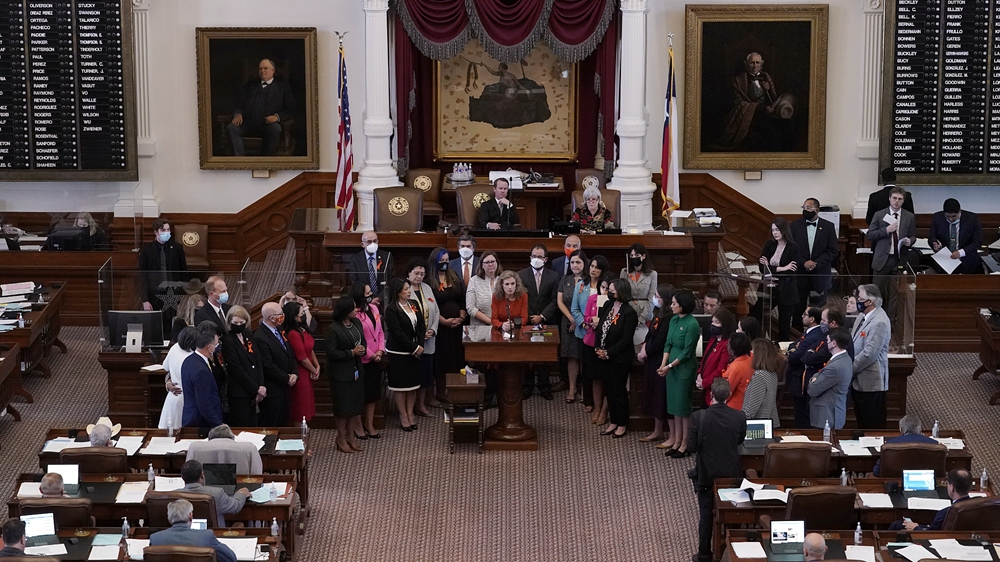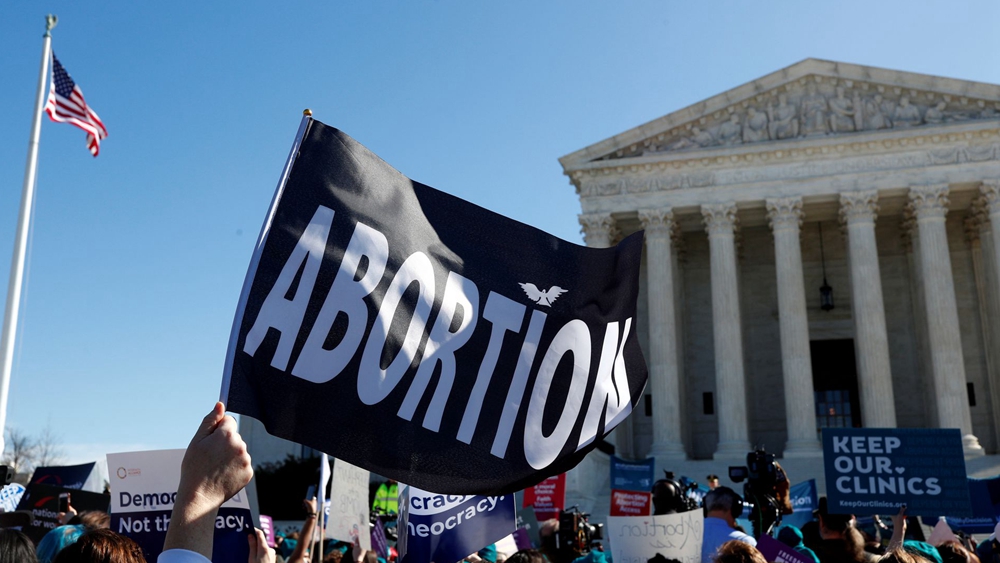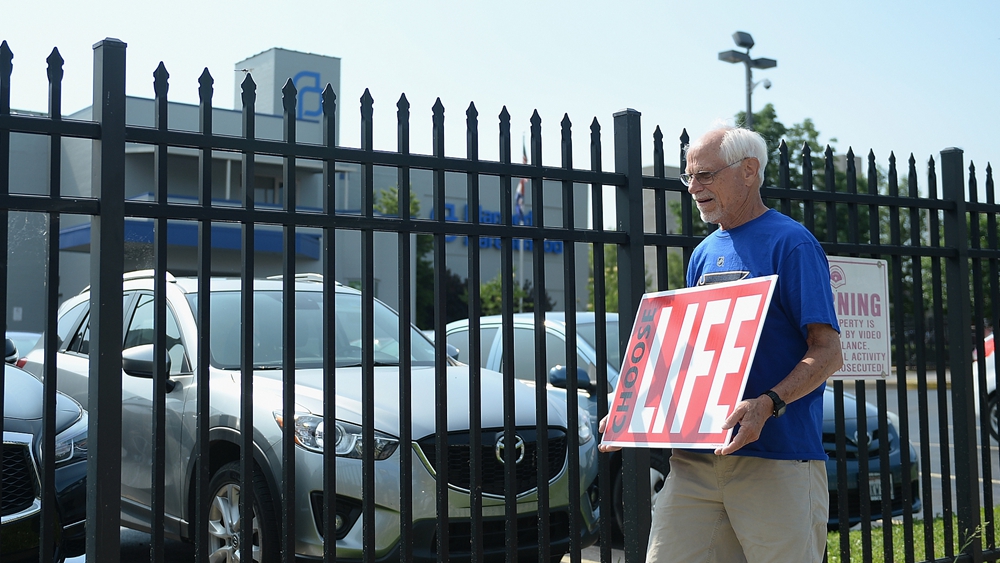
Texas lawmakers discuss the abortion bill in the House Chamber in Austin, Texas, May 5, 2021. /CFP
Texas lawmakers discuss the abortion bill in the House Chamber in Austin, Texas, May 5, 2021. /CFP
Texas on Wednesday enacted the strictest anti-abortion law in the country after the U.S. Supreme Court declined to act on a request by abortion-rights groups to block the law banning the procedure after six weeks of pregnancy.
It was a victory for conservatives, who have long sought to eliminate abortion access in the United States.
Democrats including President Joe Biden voiced outrage, saying the Texas law violated the right to abortion access established by the Supreme Court's landmark decision in Roe v. Wade in 1973.
"My administration will protect and defend that right," Biden said.
Abortion rights activists said such a ban has not been enacted in any U.S. state since that landmark ruling.
Texas abortion providers worked until almost the midnight deadline, when the Supreme Court's inaction allowed the law to be enforced.

A demonstrator holds up an abortion flag outside of the U.S. Supreme Court as justices hear a major abortion case on the legality of a Republican-backed Louisiana law that imposes restrictions on abortion doctors, on Capitol Hill in Washington, D.C., March 4, 2020. /Reuters
A demonstrator holds up an abortion flag outside of the U.S. Supreme Court as justices hear a major abortion case on the legality of a Republican-backed Louisiana law that imposes restrictions on abortion doctors, on Capitol Hill in Washington, D.C., March 4, 2020. /Reuters
The justices could yet take action on the Texas case. But they have already agreed to hear arguments in Mississippi's effort to overturn Roe v. Wade.
The law amounts to a near-total ban on abortion procedures given that 85 to 90 percent of abortions occur after six weeks of pregnancy, and would likely force many clinics to close, the abortion-rights groups said.
Texas governor Greg Abbott has vowed to sign that bill into law.
The law, signed on May 19, is unusual in that it prevents government officials from enforcing the ban, instead giving private citizens that power by enabling them to sue anyone who provides or "aids or abets" an abortion after six weeks. Citizens who win such lawsuits would be entitled to at least $10,000.
Texas is among a dozen mostly Republican-led states that have enacted "heartbeat" abortion bans, which outlaw the procedure once the rhythmic contracting of fetal cardiac tissue can be detected, often at six weeks – sometimes before a woman realizes she is pregnant. Courts have blocked such bans.

A man carries a pro-life sign in a demonstration outside the Planned Parenthood Reproductive Health Services Center in St. Louis, Missouri, May 31, 2019. /CFP
A man carries a pro-life sign in a demonstration outside the Planned Parenthood Reproductive Health Services Center in St. Louis, Missouri, May 31, 2019. /CFP
A court could still put the ban on hold, and no court has yet ruled on its constitutionality, Stephen Vladeck, a professor at the University of Texas at Austin School of Law, wrote in a tweet.
"Despite what some will say, this isn't the 'end' of Roe," he wrote.
In the Texas case, empowering private citizens helped shield the law from being immediately blocked as it made it more difficult to directly sue the government. It is a formula other states seeking heartbeat bans could potentially follow, legal experts said.
"Texas has certainly created a blueprint for other states," said Mary Ziegler, an expert on abortion at Florida State University College of Law.
Those states may see that path as unnecessary, she said, given that the Supreme Court has already agreed to hear a major case over Mississippi's 2018 law banning abortion after 15 weeks.
The justices will hear arguments in their next term, which begins in October, with a ruling due by the end of June 2022.
Source(s): Reuters

